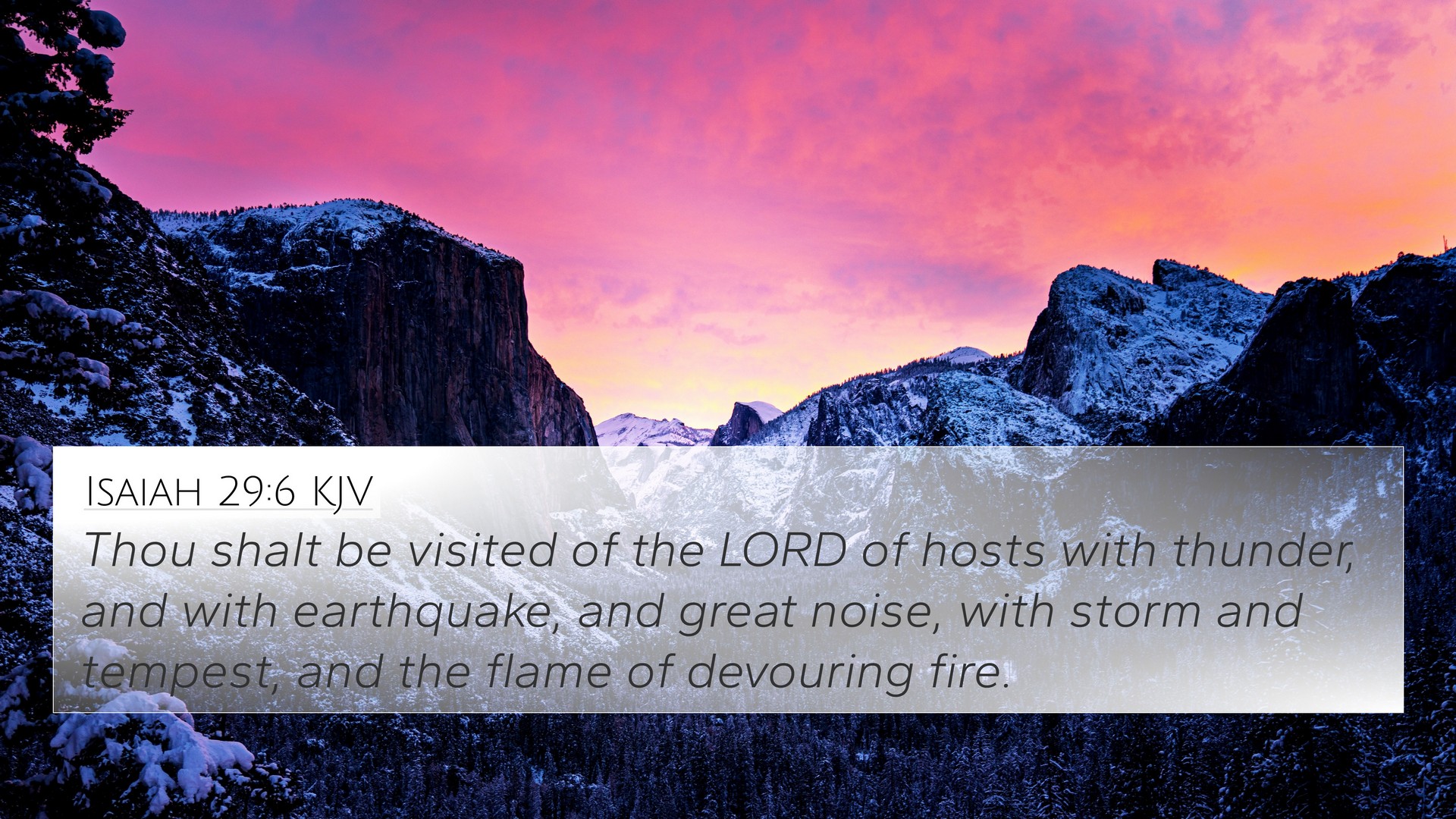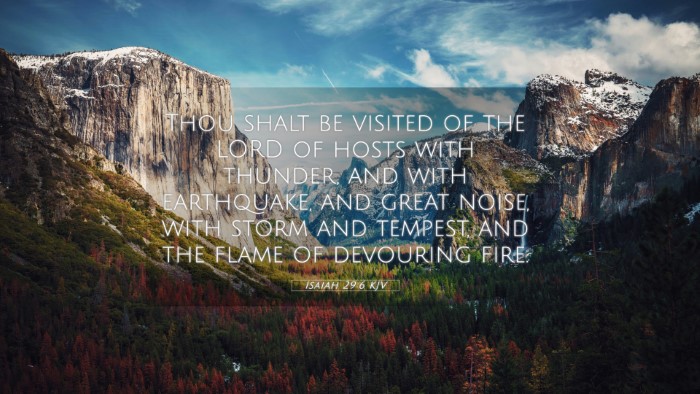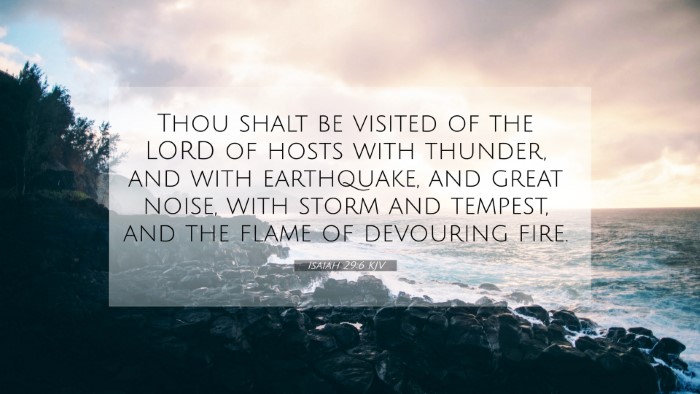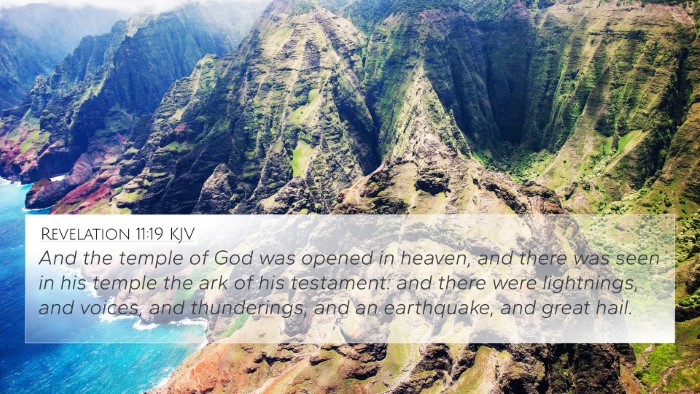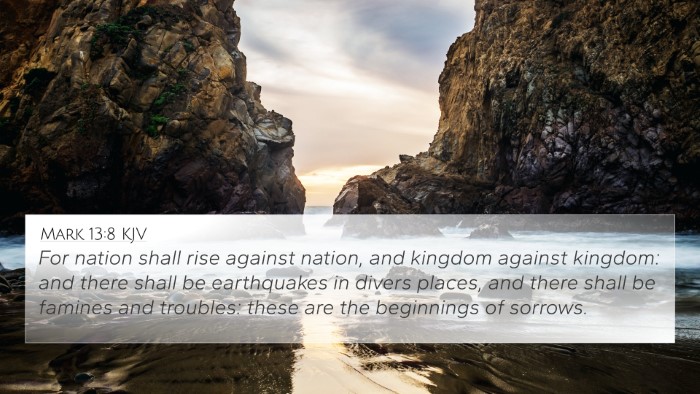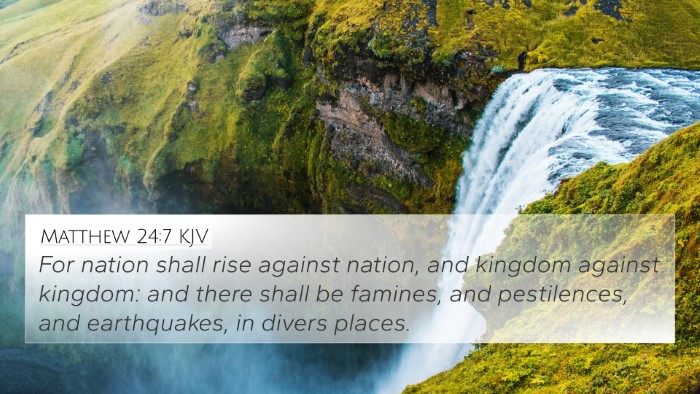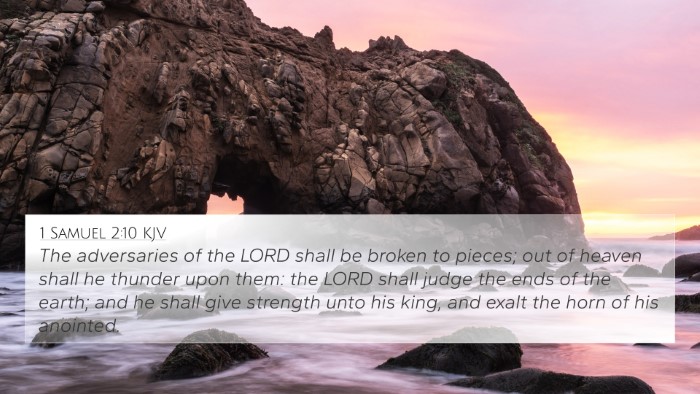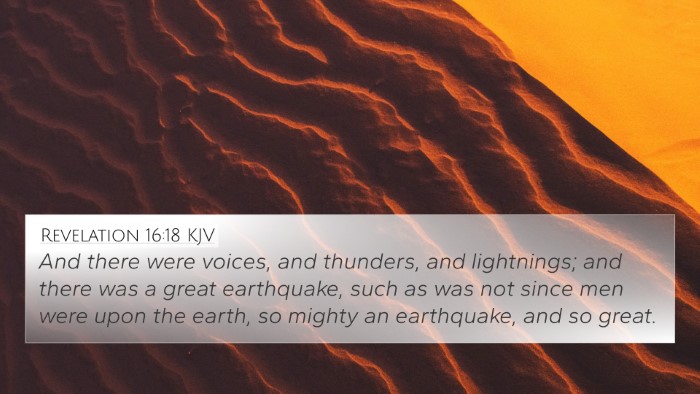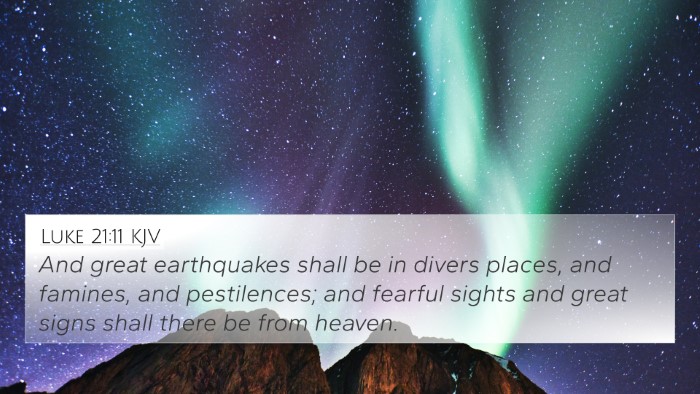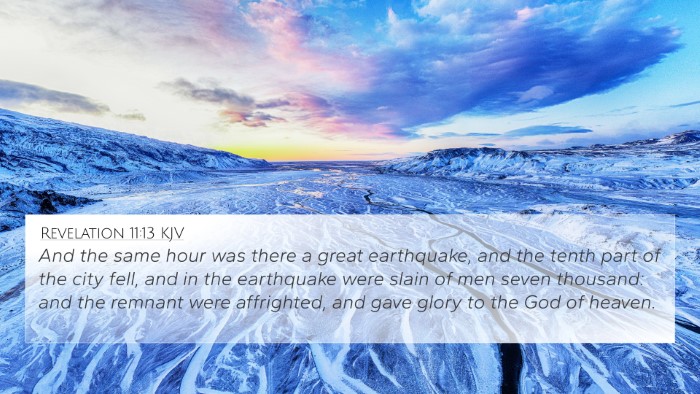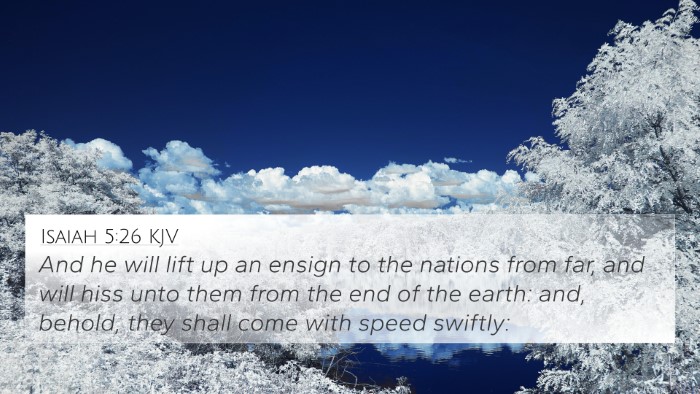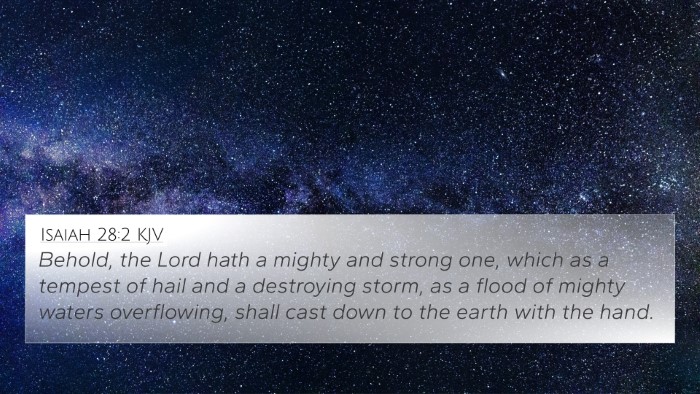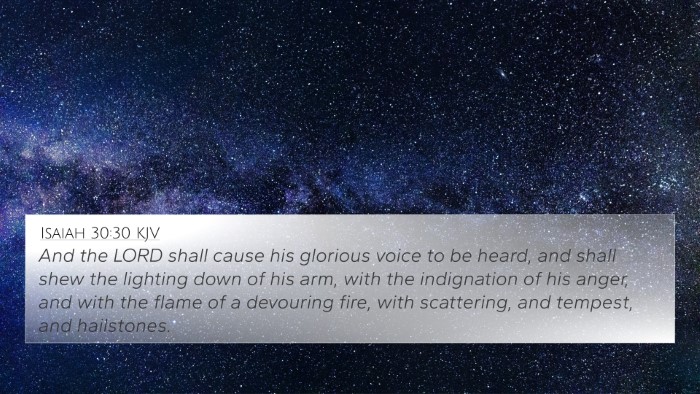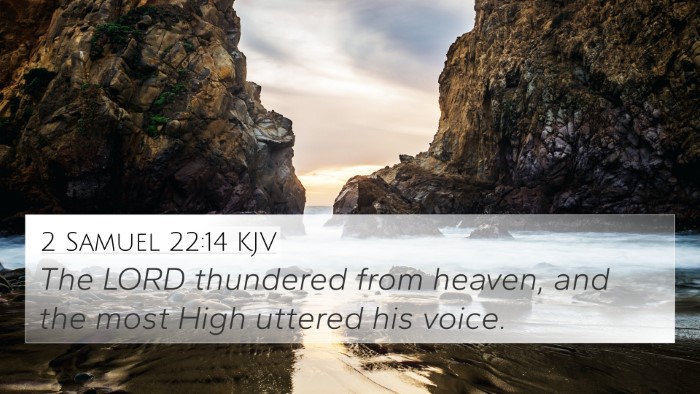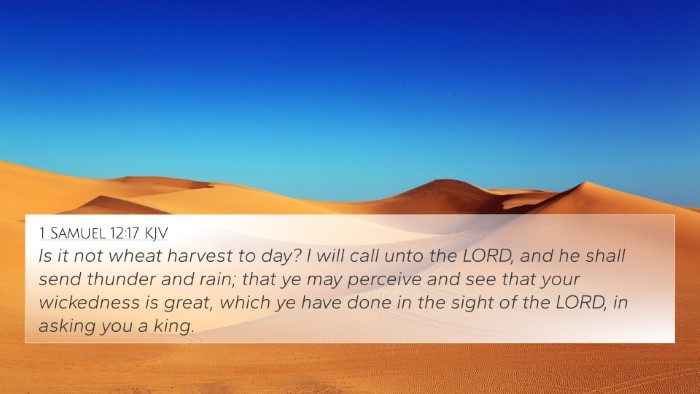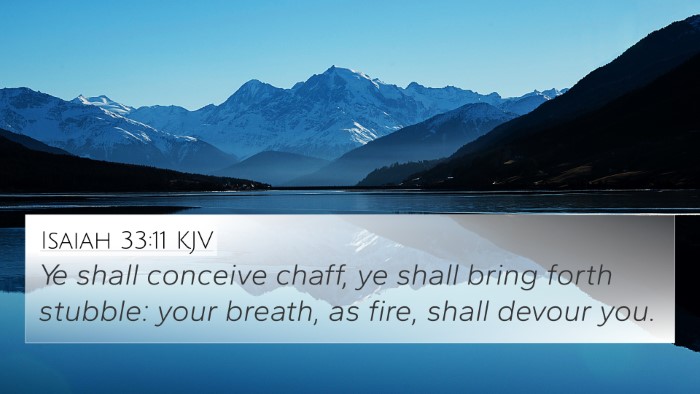Understanding Isaiah 29:6
Isaiah 29:6 states: "You will be punished by the Lord of Hosts with thunder and earthquake and great noise, with whirlwind and tempest, and the flame of a devouring fire." This verse encapsulates God's warning of judgment against the people of Jerusalem, highlighting His sovereignty and power over nature.
Analysis and Commentary
This verse is often examined through a variety of lenses provided by biblical scholars. In this examination, insights from Matthew Henry, Albert Barnes, and Adam Clarke offer valuable perspectives.
Matthew Henry's Commentary
Matthew Henry emphasizes the connection between the divine judgment and the natural elements mentioned in the verse. He notes that such signs serve as a direct intervention from God to bring forth His justice and that the 'fire' represents purification and destruction of sin. Henry posits that God's power is manifested through creation itself, thus illustrating His authority over humanity.
Albert Barnes' Interpretation
Albert Barnes takes a more detailed approach by highlighting the immediate context of the prophecy. He illustrates that the chaos symbolized here indicates divine displeasure towards the people’s hypocrisy and ungodliness. Barnes also notes the metaphorical significance of 'thunder' and 'earthquake' as soundings of God's wrath, thus calling for a grave reckoning. He correlates these judgments with historical events during the exile, where such phenomena may have impacted the Israelites.
Adam Clarke's Insights
Adam Clarke provides an exegetical perspective, explaining that the 'devouring fire' serves as an indicator of total upheaval in the natural world as an effect of divine judgment. Clarke points out that the use of such vivid imagery in this verse serves not just to instill fear, but also to foster repentance among the people. He draws connections to other scriptural instances where God employs similar methods to convey His messages, reinforcing the continuity in biblical themes of judgment and mercy.
Bible Verse Cross-References
Isaiah 29:6 relates to several other verses that echo themes of divine judgment, natural phenomena, and God's sovereignty. These cross-references enrich our understanding of this particular scripture. Here are some significant biblical texts to consider:
- Matthew 24:29: Discusses the heavenly signs that precede divine judgment.
- Amos 1:2: The Lord roars from Zion, emphasizing the power of God’s voice in judgment.
- Psalm 97:3: "Fire goes before Him and burns up His enemies round about." This echoes the theme of God using nature in His judgment.
- Jeremiah 10:13: The Lord's voice causing the waters to bubble over alludes to His authority over creation.
- Revelation 16:18: Highlights a great earthquake, emphasizing God's upcoming judgment.
- Isaiah 30:30: The Lord showing His power through storms and thunder, drawing parallels to the message in Isaiah 29.
- 2 Peter 3:10: The day of the Lord will come as a thief, wherein elements will be dissolved with fervent heat, reflecting divine judgment.
- Exodus 19:16: The Lord's presence accompanied by thunders and lightnings during the giving of the law at Mount Sinai.
- Hosea 8:1: A warning sound is raised, reflecting the idea of an impending divine response.
Thematic Connections
The verse also connects with broader biblical narratives regarding repentance and the consequences of disobedience. The thematic framework suggests a cyclical pattern - sin leads to judgment, which calls for repentance, resulting in restoration. This conforms to the understanding provided in tools for Bible cross-referencing.
Connections to Other Biblical Themes
The ideas presented in Isaiah 29:6 are not isolated but are part of a larger discussion within Scripture regarding:
- Divine Sovereignty: God's ultimate control over creation and history.
- Judgment and Mercy: The interplay of God's wrath tempered by His desire for repentance.
- Natural Disasters as Signs: The use of calamities as warnings to return to righteousness.
Conclusion
In sum, Isaiah 29:6 serves as a powerful reminder of God's omnipotent nature and His methods of communication through creation. By studying this verse through comparative analysis, we gain insight into the interconnectedness of Scripture and the continued dialogue present within biblical texts. Furthermore, this exploration encourages a deeper understanding of judgment and God's merciful call to repentance among His people.
